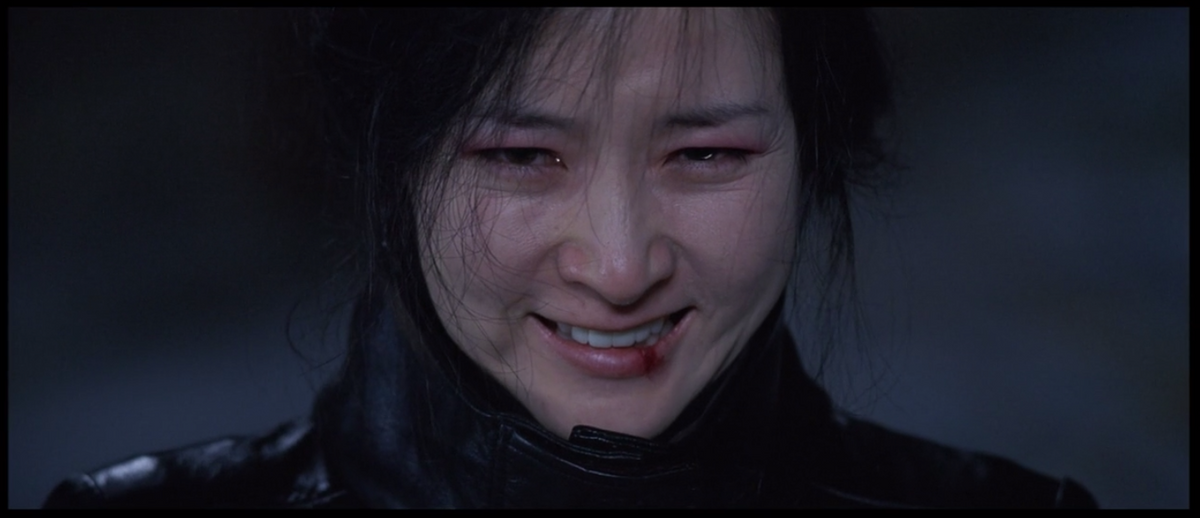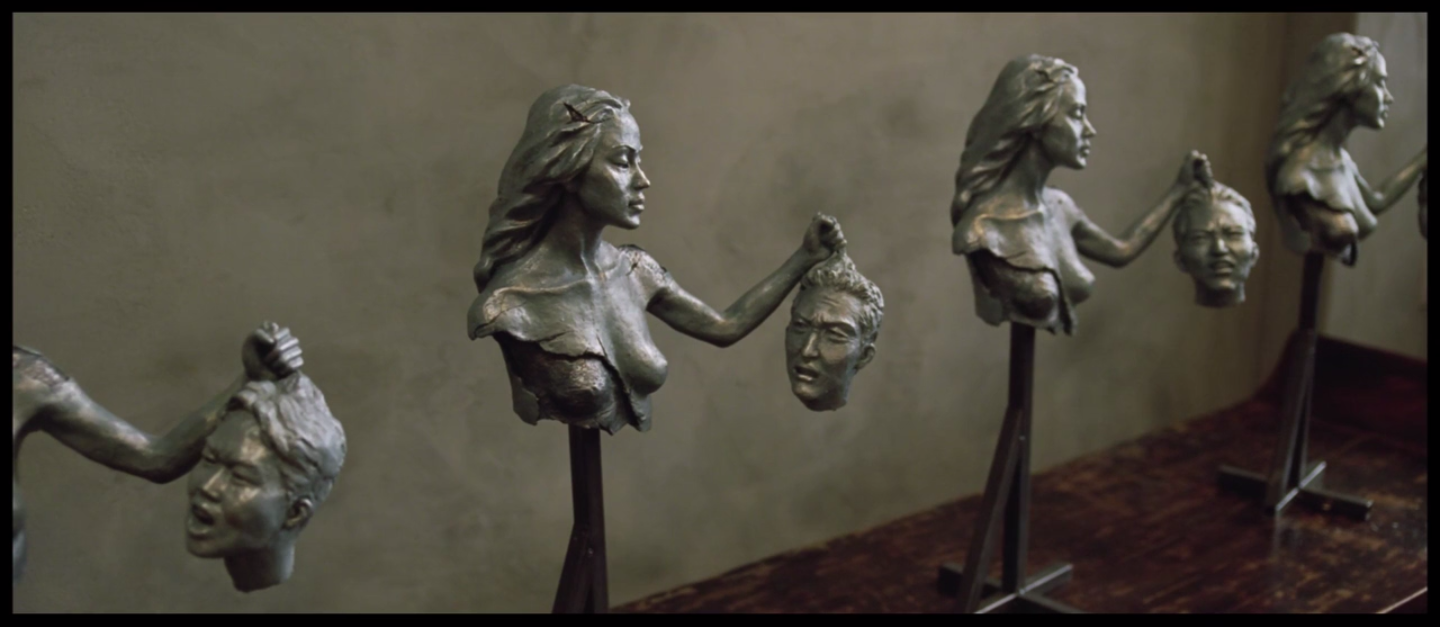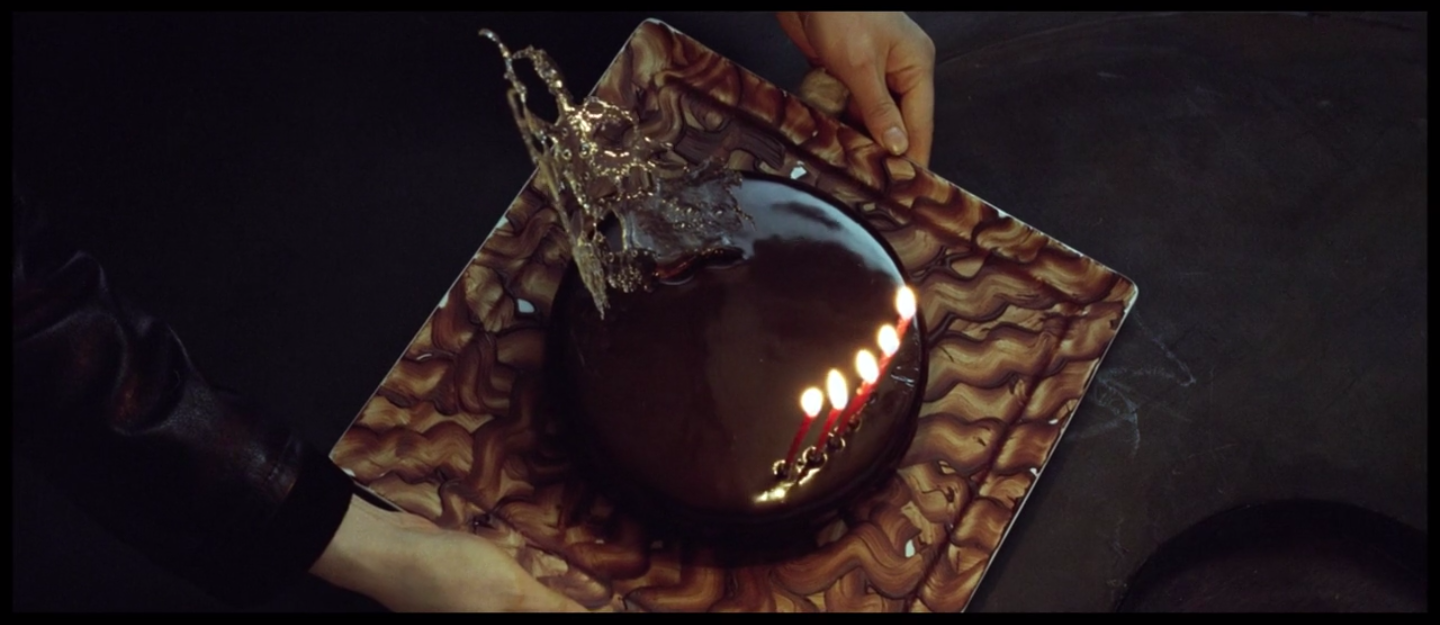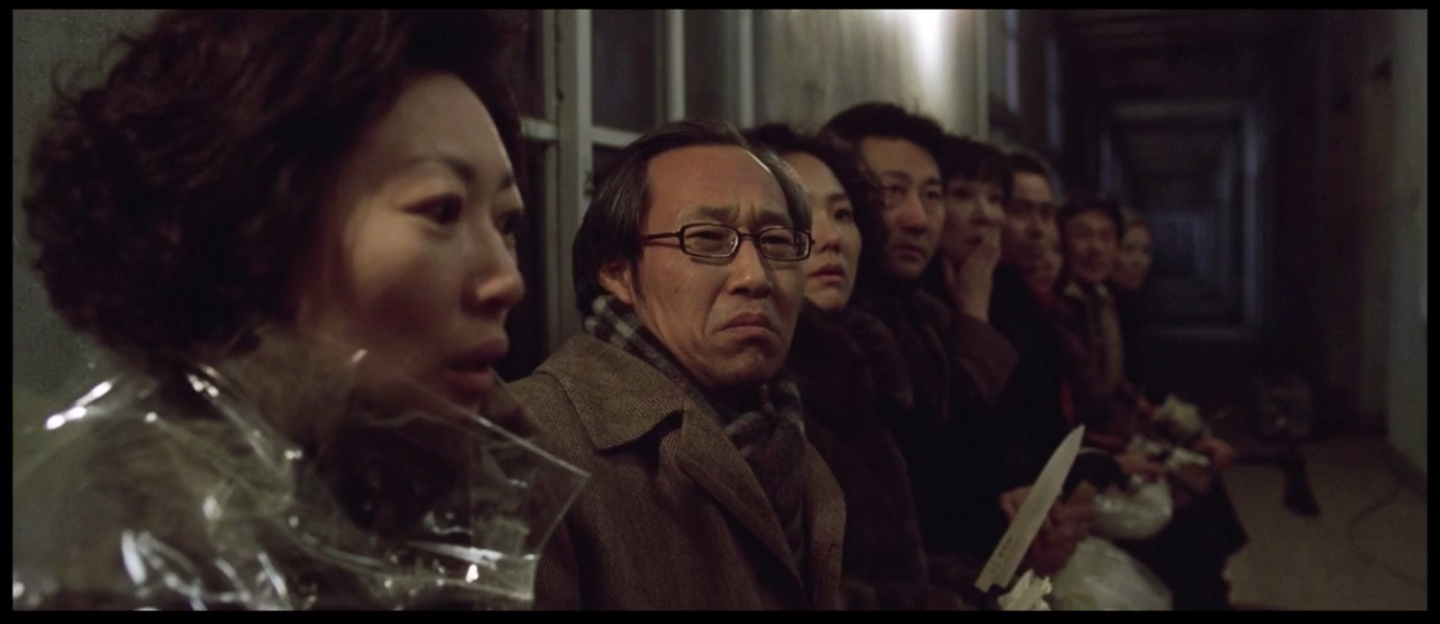The Girl with the Most Cake: Lady Vengeance (Park Chan-wook, 2005)
Someday, you will ache like I ache.

Welcome back to THEY WANT REVENGE! It's the Halloween Special, so subscriptions are cheap ($3.50/month, $35/year) with the code HALLOWEEN21. All new subscription money this month will go to the National Network of Abortion Funds.
As a reminder, the movies this month deal with sexual violence; I aim to be survivor-focused, but trust your judgment as to your own limits.
If you want to support me directly, the second issue of MAW, my comic book with A.L. Kaplan, is available in comic book stores, the BOOM! webstore, and at online retailers now. MAW #3 will be out November 17, and it's the one where things get gross. You can read the first five pages here.
Lady Vengeance is a movie that gets recommended pretty often to someone with my personality type. It’s got ladies, and vengeance, right there in the title, and I am known to be in favor of both those things. There are moments in Lady Vengeance where you’re watching the movie that title leads you to expect — something fast-paced and grisly and fun, about a wronged woman handing out violent ends to rapists and other assorted monsters.
Then the movie’s conscience sets in. Soon enough, all that fun slips out from under you, leaving you dealing with a whole different set of emotions. It’s an effect so pronounced that some runs mirrored it in the film stock: The movie starts out in full color, then fades to black and white by the final reel.
The best way I can explain it is that Lady Vengeance starts out as a Wes Anderson movie — pastel pink walls, chipper harpsichord score, dark human drives presented through a lens of twee irony — and ends as a Greek tragedy. The first half has a deft comic touch, and a fantastically deadpan lead performance (rarely is the phrase "I've converted to Buddhism" as much of a laugh line as it is here), and a character who makes her living creating custom sculptures of women holding their boyfriends’ severed heads. The last half contains some of the most funereal and upsetting imagery I’ve ever seen.
Lady Vengeance starts as a movie about wanting revenge, or seeking revenge, and then, it turns into a movie about getting it — and having to live with the person you’ve become in the process, the knowledge that you are capable of hating or even killing another human being. The English title, while fun, seriously misrepresents what the movie is about. The more direct translation of the original Korean title, I'm told, is Kind-Hearted Geum-ja. This is a movie about someone who wants to be a good person.

Geum-ja, the revenge-seeker, is introduced at the end of a thirteen-year prison sentence, which she served for abducting and killing a five-year-old boy. She confessed to the killing, and re-enacted it for police officers, and the crime’s sheer awfulness — along with the fact that Geum-ja was a pretty and innocent-looking teenage girl — made her one of the most infamous killers in the nation. Geum-ja is officially A Bad Person, one of the worst people, a monster. It’s all anyone can see when they look at her. It’s all she will ever be.
On the day she was convicted, though, Geum-ja wasn’t bad. She was coerced into participating in a crime committed by her rapist, a predatory teacher at her school named Mr. Baek. Her rapist also extorted her into confessing to the crime by kidnapping her infant daughter, who was put up for adoption to some white people in Australia, meaning that Geum-ja has never had the chance to be a mother to her own child.
There’s a heavy layer of Kill Bill here, and if you’ve seen the Tarantino movie, you probably think you know where this is going. It doesn’t go there. Violence is not a cleansing, pleasing spectacle in this movie. It’s a plague, hollowing people out from within.
Geum-ja managed to get out of prison early by becoming a born-again Christian. But, while she was publicly finding Jesus, she was privately losing her soul. She killed a rapist in prison. (I don’t think I like how the movie handles this female rapist, whose predations on young women are somehow played up in more grotesque and graphic ways than Baek’s — maybe I’m being oversensitive, given that Baek is also extremely monstrous, but I thought I’d say.) She has become capable of violence, of using people, of hurting people; she’s become capable of enjoying it. When she went into prison, she was a vulnerable and sweet, and now, she is coldly formidable, moving through the world with the chilly efficiency of a knife moving through meat.
There’s a lot of enjoyable silliness in this movie. It’s got lines like “I thought I was dying because I couldn’t be with the person I love. Turns out I had chronic kidney failure!” A beautiful himbo says that his dating goal is to meet “someone I respect,” while fully aware that the woman he’s asked out is the nation’s most infamous baby-torturer. This same woman later fucks him, tells him not to touch anything in her apartment, and slips out to Australia. When the movie is fun, it’s fun.
When the fun stops, though, it stops for good. This happens somewhere around the time Geum-ja finds her daughter, now named “Jenny,” and realizes that Jenny doesn’t love her, doesn’t remember her, can’t speak Korean; she is not this child’s mother any more, and she never will be. There is no getting back what she’s lost. There’s no getting back the person she was before she was raped, before she lost a child, before she killed another woman’s rapist, before she was coerced into kidnapping a different child who died horribly — there’s no way back to innocence or wholeness. There is no kind-hearted Geum-ja any more.

Thus, we come to the end of Lady Vengeance. You can stop reading here, if you haven’t seen it; the movie is old and well-known, but it’s not universally familiar to American audiences, and the tonal shift is so effective that it’s better if you go in unprepared and let the movie punch you in the gut.
“He made me a sinner,” Geum-ja says of Baek. It’s a tiny, insufficient sentence in a language she barely speaks, but it’s why real vengeance is impossible. The sin Baek has drawn her into cannot be wiped out by the sin of murdering him. Guilt and wrong spread out from the original offense in an ever-widening circle, turning everyone Baek touches into a vessel and reflection of his evil.
Yet there is evil in this man — profound, soul-deep, not just “bad,” but something nightmarish and inhuman. The footage of his crimes, which Geum-ja discovers, is possibly the most disturbing thing I’ve ever seen in a movie. It’s unwatchable. There were more children, and those children suffered, and Baek’s reasons, when we find them out, are so small, so capricious, so selfish, that it simply doesn’t seem possible that this man should live.
So Geum-ja summons the families of all those other victims to watch the footage, and she asks: What do you want? Do you want justice, the official thing, with a trial, and a chance for this man to walk free or die a natural death in prison? Or do you want what people want — do you want vengeance?

Geum-ja wants to rid herself of sin, but she's just handing her own sin to other people. She is drawing them into the wreck, taking away their innocence, just as Baek took hers. Murder is a terrible act. Violence is wrong. Yet the need for revenge, in the face of certain wrongs, is overpowering. Geum-ja needs to believe that anyone is capable of it, and given the right circumstances, maybe everyone would be. Consider the first question a grieving mother asks right after she’s watched Baek execute her baby: “Does he have a child?”
Only Baek dies, thank God, and he dies in quite a lot of pain, having had the rage and grief of many people enacted on his person. Yet the cost of killing Baek is becoming Baek. He corrupted Geum-ja, and Geum-ja corrupts every other victim he has. The story starts with one sadistic murderer. It ends with over a dozen of them. Other than that, nothing has changed.
If you were watching Lady Vengeance in theaters, at this point, the movie would be purely black and white. All color would be gone, and so would all redemption, all forgiveness, all hope. I’m glad for the color, though, because it’s responsible for one of the movie’s last images: A group of shattered people eating black cake off plates the color of blood. They want to celebrate. “It feels like a birthday,” one of them says, so they try to sing. But their voices shake, and the song falls apart in their mouths, and they sit in silence. It’s not a birthday. No children are growing up. Not any more.
Lady Vengeance is available to stream on Hulu.
At my other job, I wrote about how Dave Chappelle's Netflix special has unleashed the world's most annoying demographic: Aging comedy dudes complaining that they might have to learn a new joke.
Also, I don't know if you're sick of Maw talk yet, but something about this project is opening up the way for me to have the best conversations I've ever had. I was really moved by Andrea Ayres' thoughts on the series, and on telling survivors' stories that aren't "uplifting," and this conversation with Elana Levin – on rape scenes and pregnancy and my immense lifelong love of Emma Frost – is maybe the most raw I've ever been in podcast form.
That's it for the Halloween Special! Thank you for helping me raise money to provide abortions to people who need them, and happy Halloween.